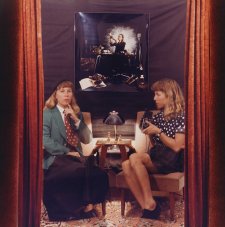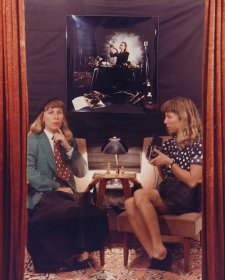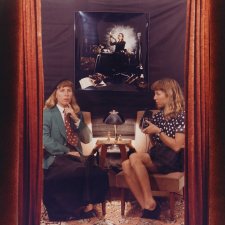- About us
- Support the Gallery
- Venue hire
- Publications
- Research library
- Organisation chart
- Employment
- Contact us
- Make a booking
- Onsite programs
- Online programs
- School visit information
- Learning resources
- Little Darlings
- Professional learning
Robyn Archer AO (b. 1948), performer, writer and director, became a star with her shows, Kold Komfort Kaffee (1978), The Conquest of Carmen Miranda (1978) and Tonight: Lola Blau (1979), for all of which she wrote the songs and performed. Her hit one-woman show A Star is Torn (1979-83) toured Australia and ran for a year in London's West End. In the 1990s she began her distinguished career as director of artistic festivals, including the Adelaide Festival, the Melbourne Festival, Tasmania's Ten Days on the Island, and Melbourne's The Light in Winter. In 2021 Archer performed Mother Archer's Cabaret for Dark Times in Hobart, Melbourne and Adelaide, and released her eleventh album Classic Cabaret Rarities.
Archer is internationally renowned for her interpretations of classic European cabaret. Her portrait by Robert McFarlane illustrated a feature published in POL magazine in May 1982, which noted Archer's 'deeply felt philosophical commitment … harking back to those Weimar artists like Bertolt Brecht and Kurt Weill with whom she shares a marked affinity'.
Purchased 2003
© Robert McFarlane/Copyright Agency, 2024



On one level The Companion talks about the most famous and frontline Australians, but on another it tells us about ourselves.



It takes a village to raise a creative! Get an insight into the often-unseen work and supporters needed for the arts to thrive. The work of art documents the creative process, evoke states of creativity and inspiration, and shows us clues about the subject’s own work from the way artists portray them.



This exhibition celebrates Australians whose unique life experiences symbolise social and cultural forces. Uncompromising individuality defines them. The portraits are drawn from the National Portrait Gallery’s collection of contemporary photography and drawing.